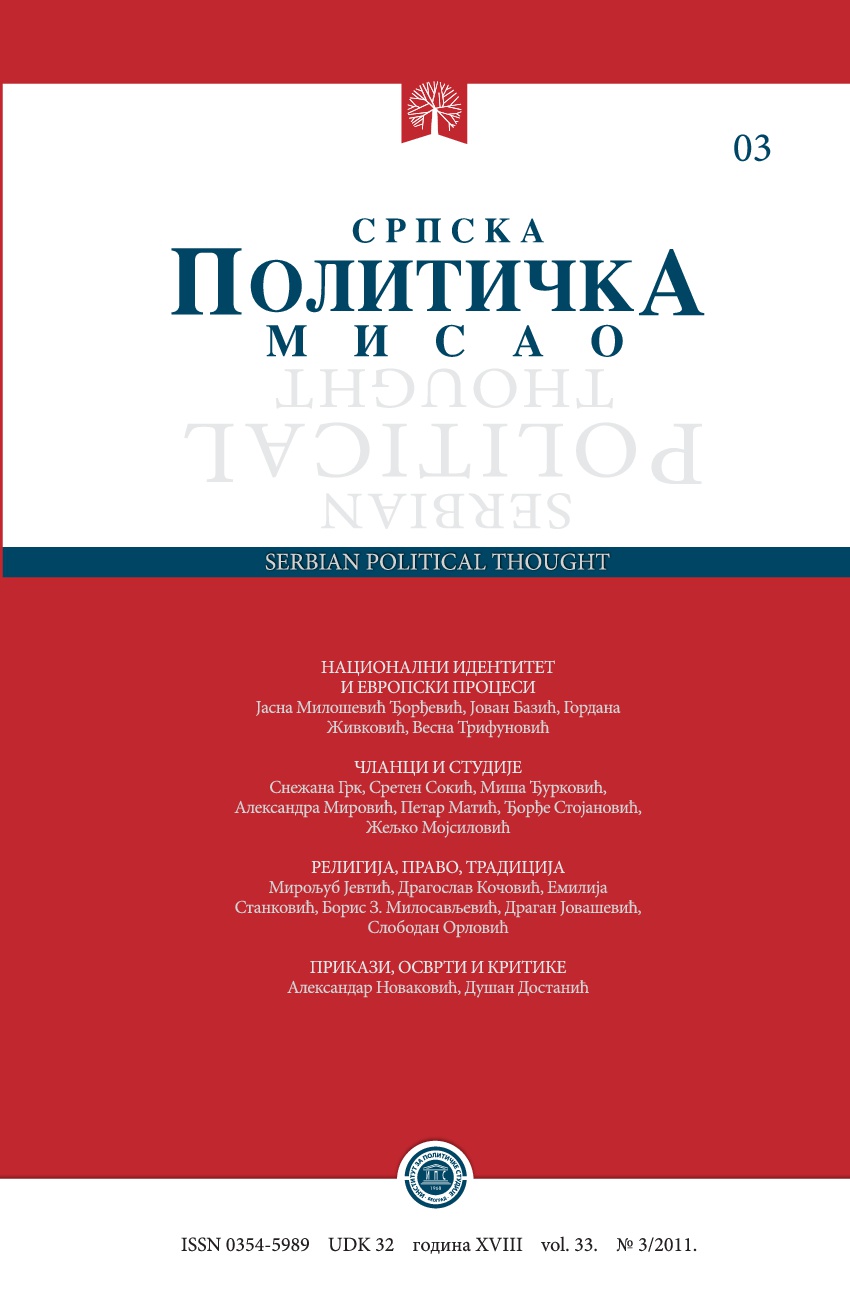Утицај религије на социјалну политику у европској унији
The Influence of Religion on Social Policy in the European Union
Author(s): Dragoslav KočovićSubject(s): Christian Theology and Religion, Recent History (1900 till today), Islam studies, Welfare systems, Politics and religion, Politics and society, EU-Accession / EU-DEvelopment
Published by: Институт за политичке студије
Keywords: European Union; religion; social; welfare; Christianity; Islam; models; encyclical; centralized; decentralized;
Summary/Abstract: In the post- war period (since the middle of the XX century), the European territory has been covered by dynamic and very comprehensive changes in all spheres of social life. The paper shows dilemmas through which the EU has passed in terms of determination of the status of religion in this territory. Namely, there were some discussions on whether Christianity as the dominant religion in Europe should be the official religion of the Union or not. The opinions were divided, but the attitude that religious affiliation is a personal thing of each individual prevailed, which means that everyone has the right and freedom to change their religious affiliation. It is certain that the creators of the European model of uniting countries had in mind the significance of religious tolerance and free choice of believers as an essential factor of peaceful and stable development in the territory of the European Union.
Journal: Српска политичка мисао
- Issue Year: 2011
- Issue No: 3
- Page Range: 267-288
- Page Count: 22
- Language: Serbian

